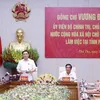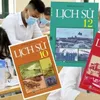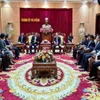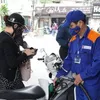Vietnam, US step up cooperation after COVID-19
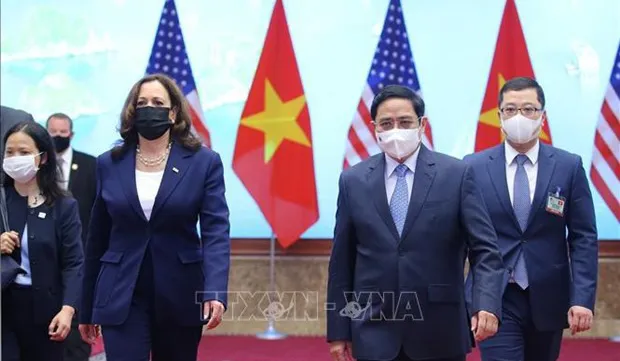
In politics and diplomacy, the bilateral relationship has maintained its positive development pace.
After the pandemic was brought under control, the two sides conducted all-level meetings and delegation exchanges, notably President Nguyen Xuan Phuc’s bilateral activities with the US on the sidelines of the 76th session of the United Nations General Assembly last September, and the working trip to the US and the UN by Prime Minister Pham Minh Chinh on the occasion of the ASEAN-US Special Summit last May, as well as meetings between the PM and President Joe Biden and Special Presidential Envoy for Climate John Kerry on the fringes of the UN Climate Change Conference (COP26) in 2021.
Vietnam has also welcomed US delegations, including those led by Vice President Kamala Harris in August 2021, US Secretary of Defence Lloyd Austin a month earlier, John Kerry last February and Deputy Secretary of State Wendy Sherman last June.
The two sides have maintained dialogue mechanisms online and exchanges through letters and talks, during which the US reiterated its commitment to backing a strong, independent and prosperous Vietnam, highly valuing the country’s position and affirming the importance its attaches to their bilateral ties.
The US also suggested the two sides take further steps to enhance their relations, prioritising cooperation in economy, trade, national defence-security, and healthcare.
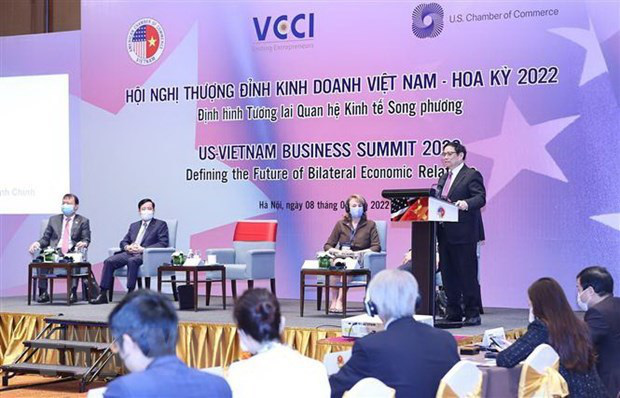
Prime Minister Pham Minh Chinh attends US-Vietnam Busiess Summit in March 2022 (Photo: VNA)
Their two-way trade has also grown strongly, reaching nearly 11.2 billion USD as of May 2022, up 26% year-on-year. The US has remained Vietnam’s biggest buyer, while Vietnam is the ninth biggest trade partner of the US.
They are working towards a harmonious and sustainable trade balance, while continuing with talks to foster cooperation and handle pending issues in their trade ties. During the visit to the US by PM Chinh in May, Vietnamese and US firms signed trade contracts and agreements valued at over 30 billion USD.
As of March 2022, US ranked 11th among 141 countries and territories investing in the Southeast Asian nation, with 10.3 billion USD in investment.
US enterprises have expressed their willingness to cooperate in the areas in which Vietnam is interested like infrastructure development, supply chain building and digital economy. For collaboration in national defence and security, the two sides have partnered to settle war consequences and improve navigation capacity. During her recent visit to Vietnam, Sherman announced the US’s additional funding of 19 million USD for bomb and mine clearance in Vietnam.
Educational cooperation has also made progress, as the US International Development Finance Corporation (DFC) announced the financial commitment of 37 million USD to support the construction of Fulbright University Vietnam (FUV)’s new campus in Ho Chi Minh City. Currently, Vietnam has six US-invested educational institutions in Hanoi, Ho Chi Minh City, Quang Ninh, Hai Phong and Binh Duong. Cooperation in healthcare and pandemic control remains a highlight of relations.
The US has to date donated nearly 40 million doses of COVID-19 vaccines to Vietnam, of which nearly 39 million doses came via the COVAX Facility.
The US also opened its Centers for Disease Control and Prevention (CDC) Southeast Asia Regional Office in Hanoi during the visit by Vice President Harris. The two countries have also closely coordinated in regional and international issues of shared concern and the pandemic, and especially within the frameworks of the UN Security Council and ASEAN mechanisms./.
Tags:
